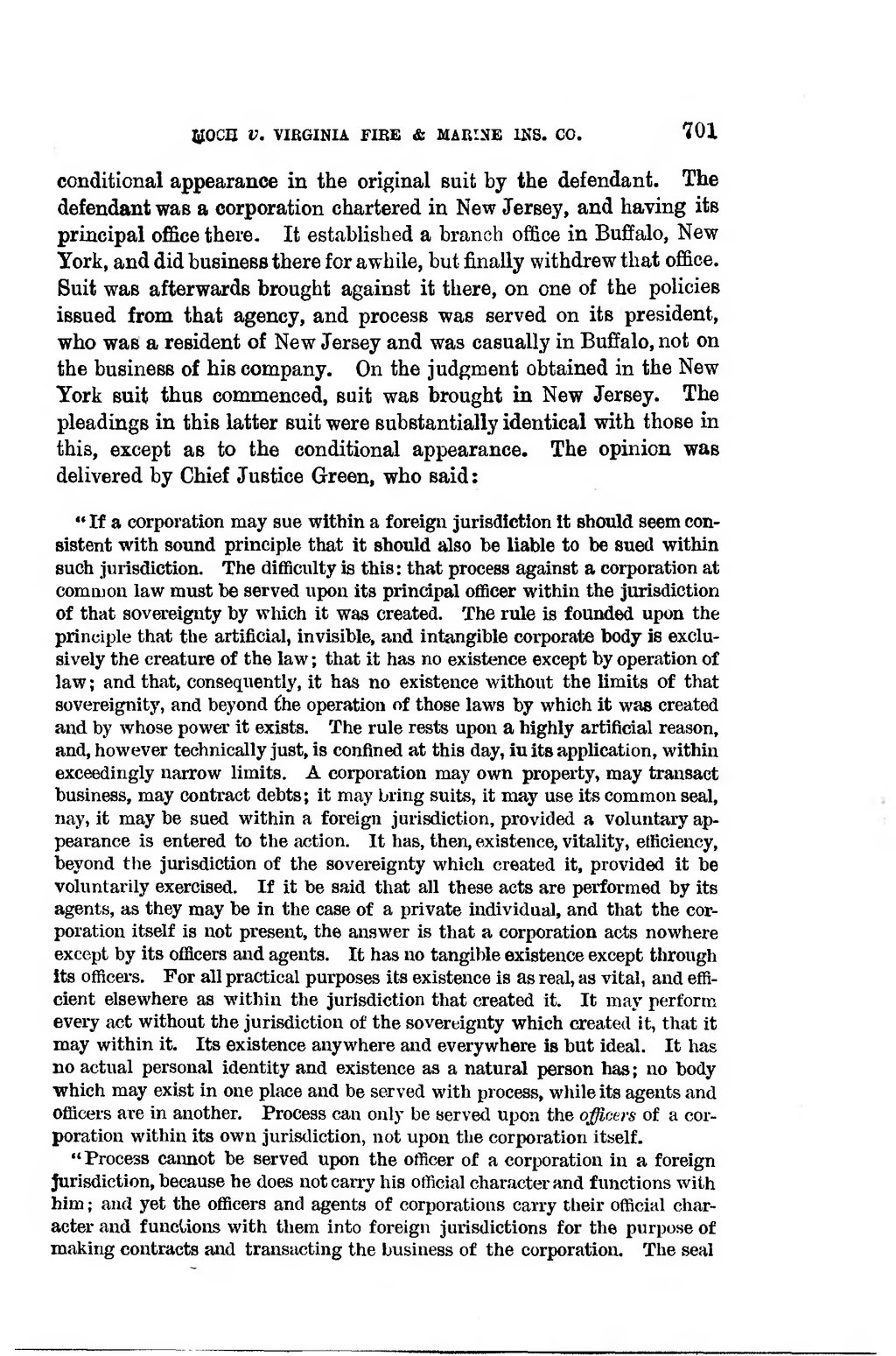KOCn 17. VIRGINIA FIEE & MARISE INS. CO. 701 �conditional appearance in the original suit by the defendant. The defendant was a corporation chartered in New Jersey, and having its principal office there. It established a branoh office in Buffalo, New York, and did business there for awbile, but finally withdrew that office. Suit was afterwards brougbt against it there, on one of the policies issued from that agenoy, and process was served on its president, who was a resident of New Jersey and was casually in Bufialo, not on the business of his company. On the judgment obtained in the New York suit thus commenced, suit was brougbt in New Jersey. The pleadings in this latter suit were substantially identical with those in this, except as to the conditional appearance. The opinion was delivered by Chief Justice Green, who said : �" If a corporation may sue within a foreign jurisdiction It should seem con- sistent with Sound principle that it should also be liable to be sued within such jurisdiction. The diflSculty is this: that process against a corporation at common law must be served upon its principal offlcer within the jurisdiction of that sovereignty by which it was created. The rule is founded upon the principle that the artificial, invisible, and intangible corporate body is exclu- sively the creature of the law ; that it has no existence except by operation of law ; and that, consequently, it has no existence without the limits of that sovereignity, and beyond the operation of those laws by which it was created and by whose power it exists. The rule rests upon a highly artificial reason, and, however technically just, is conflned at this day, in its application, within exceedingly narrow limits. A corporation may own property, may transact business, may contract debts; it may bring suits, it may use its common seal, iiay, it may be sued within a foreign jurisdiction, provided a voluntary ap- pearance is entered to the action. It has, then, existence, vitality, effieiency, beyond the jurisdiction of the sovereignty which created it, provided it be voluntarily exercised. If it be said that all these acts are performed by its agents, as they may be in the case of a private individual, and that the cor- poration itself ia not present, the answer is that a corporation acts nowhere except by its offlcers and agents. It has no tangible existence except through Its offlcers. For all practical purposes its existence is as real, as vital, and effi- cient elsewhere as within the jurisdiction that created it. It may perform every act without the jurisdiction of the sovereignty which created it, that it may within it. Its existence anywhere and everywhere is but ideal. It has no actual personal identity and existence as a natural person has ; no body •which may exist in one place and be served with process, while its agents and offlcers are in another. Process eau o)ily be served upon the offirxrs of a cor- poration within its own jurisdiction, not upon the corporation itself. �"Process cannot be served upon the offlcer of a corporation in a foreign Jurisdiction, because be does not carry his officiai character and f unctions with hiœ ; aud yet the offlcers and agents of corporations carry their officiai cliar- acter and funellons with tliem into foreign jurisdictions for the purpose of making contracts and transacting the business of the corporation. The seal ��� �
